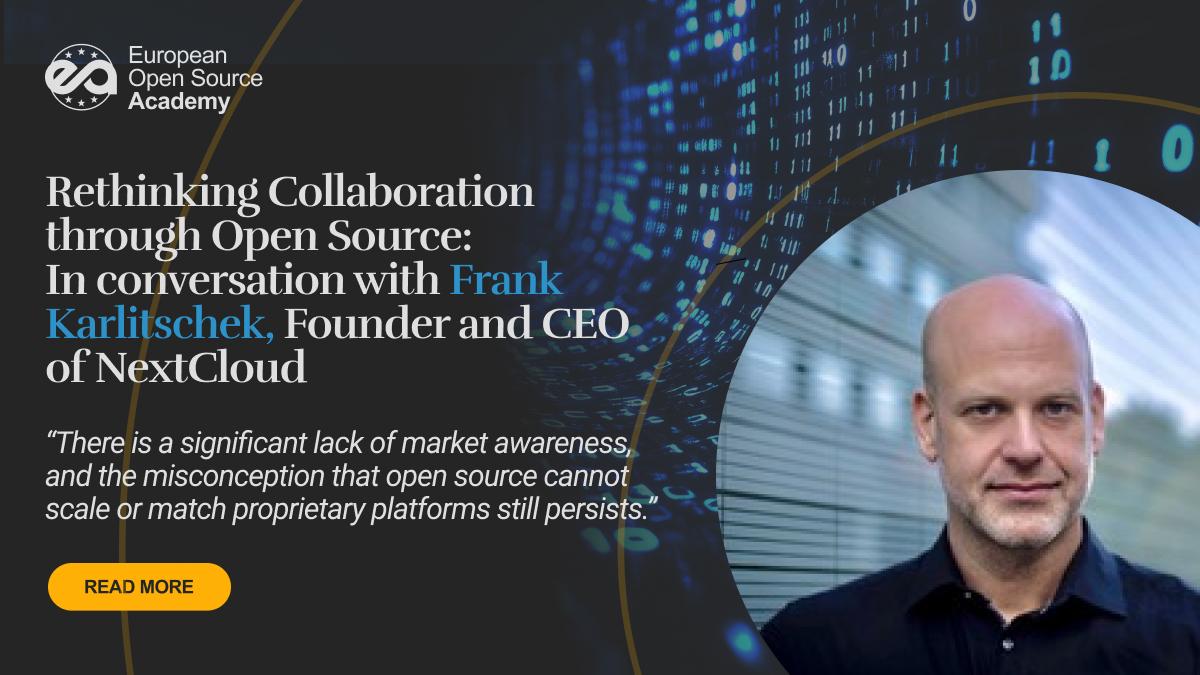In a time where digital routines, from scheduling meetings to storing sensitive data, are seamlessly integrated into proprietary platforms, it is easy to overlook the systems that morph our digital autonomy daily. Beneath the wave of mainstream solutions, lies a vibrant community of open source innovators – one them, Frank Karlitschek, founder and CEO of Nextcloud, has helped shape it with unwavering ethical clarity. More than a technologist, Karlitschek is a prominent advocate for decentralisation, privacy, and user empowerment, offering a compelling blueprint for the future of digital infrastructure.
From ownCloud to Nextcloud: Building a Vision of Collaborative Autonomy
Karlitschek’s trajectory as an open source advocate began in the late 1990s, where he joined the KDE project and later served on the board of KDE e.V. His early work laid the foundation for developer-oriented platforms like openDesktop.org, designed to foster collaborative innovation across the open source community.His early project, ownCloud, sought to give users a self-hosted file-sharing solution in a world dominated by closed systems. With the launch of Nextcloud in 2016, the global cloud companies found a competitor that directly tackled the concerns of transparency, customisability, and privacy.
“Behind the solutions, there is a huge community.” noted Karlitschek, with open source not being simply a technical methodology but also a value-driven commitment. “Open source is about influencing technology, transforming it – and through this, ensuring digital sovereignty.”
Addressing the market gap: the open source as the privacy protector alternative
At the core of Nextcloud’s mission lies a consideration of privacy as a foundational right, not simply a solution feature. In a landscape where data collection and information is the most valuable commodity, Nextcloud’s commitment to open standards offers an alternative – trusted particularly by European governments, NGOs, and institutions requiring compliance with the General Data Protection Regulation (GDPR).
Karlitschek is candid about the challenges faced by open source projects in gaining mainstream visibility: “We have to tackle the defeatism surrounding dominant solution,” he shares.
“There is a significant lack of market awareness, and the misconception that open source cannot scale or match proprietary platforms still persists.”
Nevertheless, Nextcloud’s adoption across public sectors demonstrates that privacy-centred technology can also be practical, scalable, and secure. Its modular architecture, real-time collaboration capabilities, and community-driven roadmap make it a credible standard-bearer for European digital autonomy.
A European Imperative: Scaling Open Source Through Policy and Community
Karlitschek sees Europe as a fertile ground for advancing open source infrastructure – not in spite of its diversity and heterogeneity, but because of it. “There is already a vast community behind these solutions – not just developers, but the users who actively advocate and amplify the solutions’ value,” he observed. “The structural differences across Europe should be harnessed as engines of innovation, rather than seen as obstacles to scalability.”
This vision aligns with the goals of the European Open Source Academy, an initiative designed to identify critical digital infrastructures and support innovation in line with shared European values such as transparency and sustainability.
Supporting open source through public investment, public recognition, and skill development will yield long-term strategic benefits for digital sovereignty. The amplification of open source solutions, such as Frank Karlitschek’s is about more than technical innovation; its about empowering the next generation of developers to become creators, and support conscious consumers of technology.
Learn more about Nextcloud:
Nextcloud offers a modern, on premise content collaboration platform with real-time document editing, video chat & groupware on mobile, desktop and web. To learn more about Nextcloud services and principles explore here: https://nextcloud.com/

